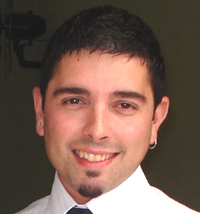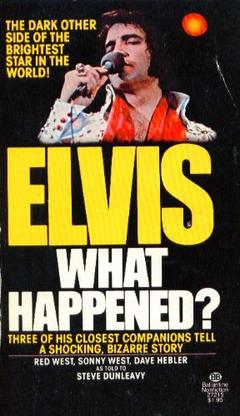Related Research Articles

A hacker is a person skilled in information technology who achieves goals by non-standard means. The term has become associated in popular culture with a security hacker – someone with knowledge of bugs or exploits to break into computer systems and access data which would otherwise be inaccessible to them. In a positive connotation, though, hacking can also be utilized by legitimate figures in legal situations. For example, law enforcement agencies sometimes use hacking techniques to collect evidence on criminals and other malicious actors. This could include using anonymity tools to mask their identities online and pose as criminals.

Phrack is an e-zine written by and for hackers, first published November 17, 1985. It had a wide circulation which included both hackers and computer security professionals.

Kevin David Mitnick was an American computer security consultant, author, and convicted hacker. He is best known for his high-profile 1995 arrest and five years in prison for various computer and communications-related crimes. Mitnick's pursuit, arrest, trial and sentence were all controversial, as were the associated media coverage, books and films. After his release from prison, he ran his own security firm, Mitnick Security Consulting, LLC, and was also involved with other computer security businesses.

Google Hacks: Tips & Tools for Smarter Searching is a book of tips about Google by Tara Calishain and Rael Dornfest. It was listed in the New York Times top ten business paperbacks in May 2003, considered at the time to be "unprecedented" for a technology book, and "even rarer" for the topic of search engines. The book was first published by O'Reilly in February 2002. The third edition of the book was released in 2006.
The Hacker's Handbook is a non-fiction book in four editions, each reprinted numerous times between 1985 and 1990, and explaining how phone and computer systems of the period could be 'hacked'. It contains candid and personal comments from the book's British author, Hugo Cornwall, a pseudonym of Peter Sommer who is now Professor of Digital Forensics at Birmingham City University, and frequently appears in the United Kingdom courts as an expert on digital evidence and computer forensics for both prosecution and defence as well as being a media pundit and author on information security topics. He advised the UK Parliament on the Investigatory Powers Act, 2016.

Howard Rheingold is an American critic, writer, and teacher, known for his specialties on the cultural, social and political implications of modern communication media such as the Internet, mobile telephony and virtual communities.

The Citizen Lab is an interdisciplinary laboratory based at the Munk School of Global Affairs at the University of Toronto, Canada. It was founded by Ronald Deibert in 2001. The laboratory studies information controls that impact the openness and security of the Internet and that pose threats to human rights. The organization uses a "mixed methods" approach which combines computer-generated interrogation, data mining, and analysis with intensive field research, qualitative social science, and legal and policy analysis methods. The organization has played a major role in providing technical support to journalists investigating the use of NSO Group's Pegasus spyware on journalists, politicians and human rights advocates.

John Gregory Markoff is a journalist best known for his work covering technology at The New York Times for 28 years until his retirement in 2016, and a book and series of articles about the 1990s pursuit and capture of hacker Kevin Mitnick.

In the context of information security, social engineering is the psychological manipulation of people into performing actions or divulging confidential information. A type of confidence trick for the purpose of information gathering, fraud, or system access, it differs from a traditional "con" in the sense that it is often one of the many steps in a more complex fraud scheme. It has also been defined as "any act that influences a person to take an action that may or may not be in their best interests."

Mark Abene is an American information security expert and entrepreneur, originally from New York City. Better known by his pseudonym Phiber Optik, he was once a member of the hacker groups Legion of Doom and Masters of Deception.
Eve Merriam was an American poet and writer.

Hacking: The Art of Exploitation (ISBN 1-59327-007-0) is a book by Jon "Smibbs" Erickson about computer security and network security. It was published by No Starch Press in 2003, with a second edition in 2008. All the examples in the book were developed, compiled, and tested on Gentoo Linux. The accompanying CD provides a Linux environment containing all the tools and examples referenced in the book.
A security hacker is someone who explores methods for breaching defenses and exploiting weaknesses in a computer system or network. Hackers may be motivated by a multitude of reasons, such as profit, protest, information gathering, challenge, recreation, or evaluation of a system weaknesses to assist in formulating defenses against potential hackers.

Ankit Fadia is an Indian self-proclaimed white-hat computer hacker, author, and television host. He is considered to be a security charlatan. His work mostly involves OS and networking tips and tricks and proxy websites.

Andrew Alan Escher Auernheimer, best known by his pseudonym weev, is an American computer hacker and professional Internet troll. Affiliated with the alt-right, he has been described as a neo-Nazi, white supremacist, and antisemitic conspiracy theorist. He has used many aliases when he has contacted the media, but most sources state that his real first name is Andrew.
Coloured hats or color-coded hats are used in psychology, religions, societies, workplaces, and learning environments.
William Troy Landreth is an American hacker notable for his cracking activities during the early 1980s within a cracking club called "The Inner Circle". MySpace cofounder, Tom Anderson was an associate. In 1984, Landreth was convicted of hacking computer systems, and accessing NASA and Department of Defense computer data. In 1986, he disappeared. Landreth's and Howard Rheingold's book, Out of the Inner Circle: A Hacker's Guide to Computer Security, published in 1986, is considered a best-seller.

Elvis: What Happened? is a 1977 sensationalist book about the American singer Elvis Presley. The book, which is based on the personal accounts of three of Elvis' former bodyguards, went into detail on Presley's prescribed drug abuse. His death, only two weeks after the book's US publication in July 1977, made it highly topical and helped boost its sales to over three million.
Kristoffer Wilhelm von Hassel is an American boy known for being the world's youngest known hacker and notable for being the youngest "security researcher" listed on Microsoft's Security Techcenter as having exposed a security vulnerability. At the age of five, Hassel exposed security lapses in the Microsoft Live Xbox system, prompting wide media coverage, with some journalists highlighting the dropping age of hackers and their technology mastery.
References
- ↑ Friedland, Nat (September 1985). "Hackers Forever!". Atari Magazine.
- ↑ O'Brien, Michael T. (1985-06-15). "Out of the Inner Circle (Book)". Library Journal . 110 (11): 68.